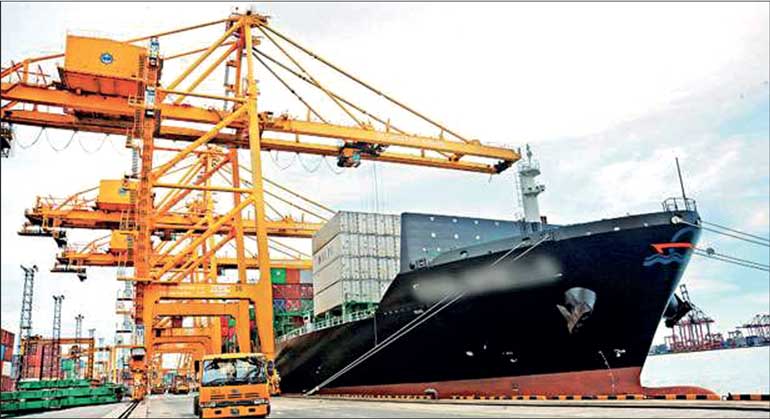Thursday Feb 26, 2026
Thursday Feb 26, 2026
Tuesday, 14 March 2023 00:10 - - {{hitsCtrl.values.hits}}

One wonders why, when Sri Lanka is on a path to liberalising the economy, the shipping industry remains a closed chapter

The export and import community is shocked by the sudden decision taken by the Minister of Shipping to rescind Gazette No. 2041/10 of 17/10/2017, which has its roots in the 2014 budget speech passed in parliament in late 2013. The budget speech presented by former President Mahinda Rajapaksa as Minister of Finance, indicated that, “In order to prevent monopoly pricing in the shipping trade, no shipping line will be permitted to levy terminal handling and other charges in addition to freight and specified international charges for container cargo.”
This was then brought into legislation under Gazette No. 1842/16 of 27/12/203 and was further enhanced by Gazette No. 2041/10 of 17/10/2017. The Gazette enshrined the cardinal principles that the cost of carriage from origin to destination must be identified as an all-inclusive freight, and that these costs can only be recovered from the contracting party, and not from any third party who has no such contractual liability. This allowed for market forces to work properly as the contracting party was responsible for all costs. The concept of zero freight was also abolished and freight had to be prepaid or collected.
At the time this legislation was brought in, the protectionist shipping and forwarding industry cried, “Wolf”, saying this would lead to shipping lines bypassing Colombo, freight forwarders going out of business and a host of other spurious claims. A look at the statistics on vessel arrival and TEU movement through the Port of Colombo from 2013 to date shows otherwise and would answer any concerns in this regard.
Shipping agencies remain a tightly controlled industry where foreign companies are not allowed to set up in Sri Lanka on their own. Despite the President’s wish to liberalise the industry, vested interests continue to protect themselves arguing that liberalisation would “kill the goose that lays the golden egg”. Liberalisation needs to happen, and the interests of a few cannot prevail over the interests of the country. One wonders why, when Sri Lanka is on a path to liberalising the economy, the shipping industry remains a closed chapter.
Revoking of the 2017 Gazette now opens the door for shipping lines and freight forwarders to go back to the era where they would charge up to 40 separate line items from both importers and exporters, who have no option other than to accept these charges, over and above the freight costs, as they are not contracting parties to the transaction. This violates the principles outlined above. This will simply lead to both exports becoming uncompetitive (at a time when export volumes are falling) and imports – particularly of staples like onions, gram, rice and dhal increasing in price. The local importers of these items will pass on these additional costs to the consumer who have no option but to accept them.
Revoking of Gazette No. 2041/10 of 17/10/2017 is revenue neutral to the state. All it does is free the hands of the monopolistic few to pass on arbitrary charges to the many, as the layer of protection of the consumer has now been removed.
It therefore begs the question as to why the Minister would take such action, backtracking on a parliament approved budget, to pass on higher costs to the Sri Lankan consumer.
(The writer is the Secretary General of the Joint Apparel Association Forum.)